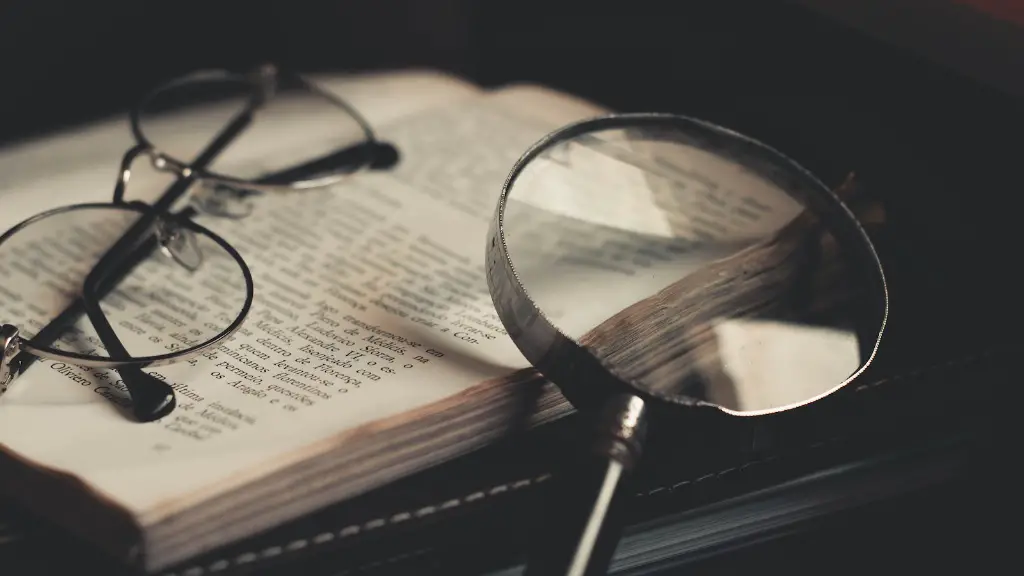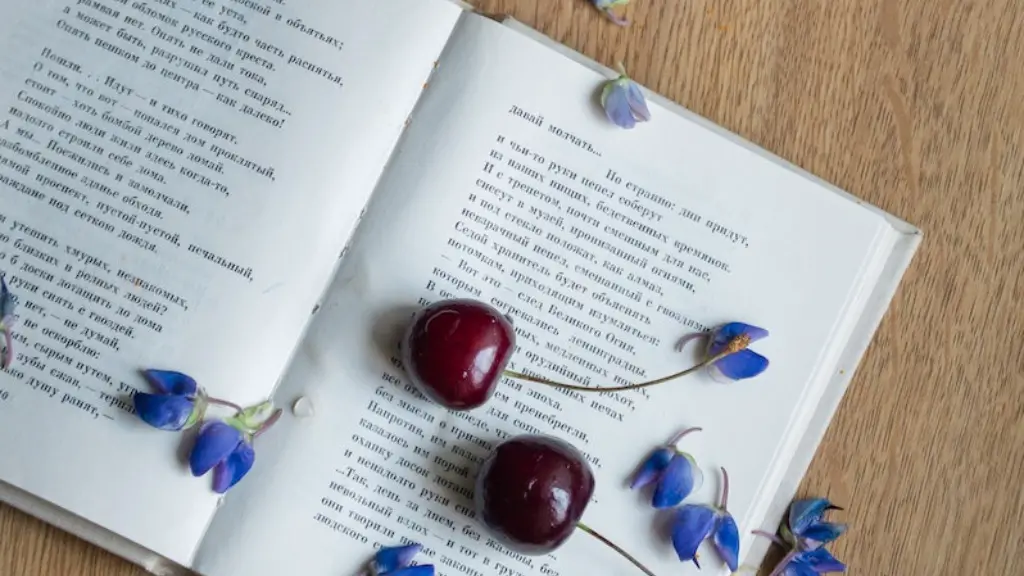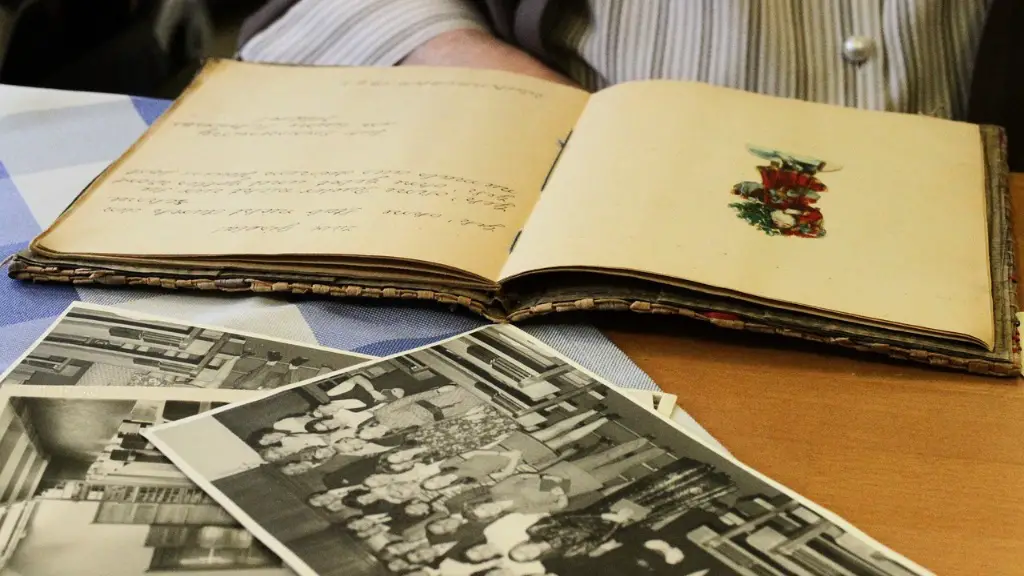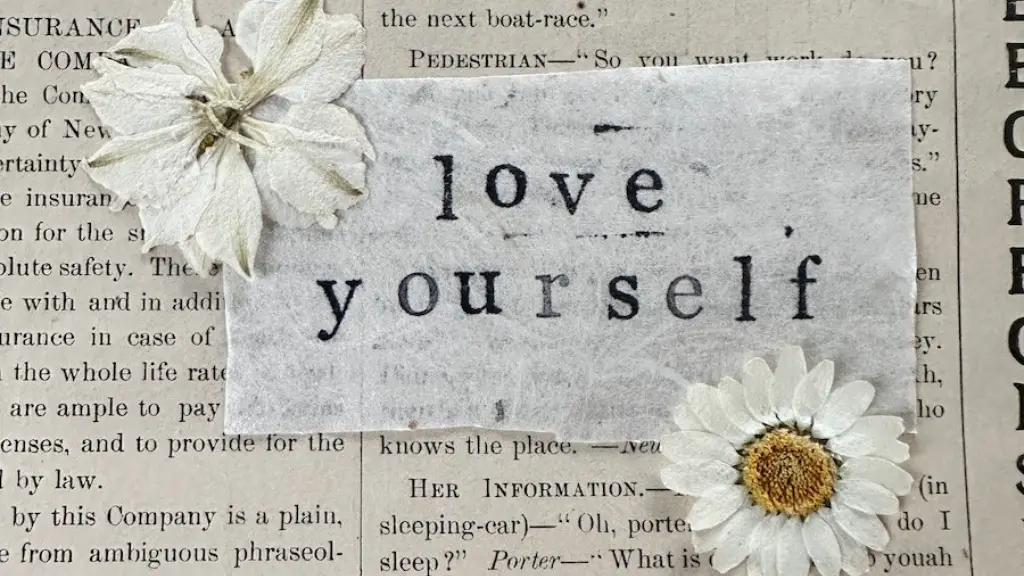Serving as one of the most prolific American poets, Emily Dickinson was also a sophisticated literary critic. In her criticism, Dickinson focused on the philosophical and psychological dimensions of a work rather than its technical aspects. For Dickinson, the value of a poem was not based on form or meter, but on the ability of the poem to engage the reader on a deep level. In her view, a poem should provoke thought and feeling in the reader, and she believed that the best poems were those that asked more questions than they answered. Dickinson was particularly interested in the relationship between the writer and the reader, and she often critiqued poems for their lack of a genuine connection with the reader.
In her poems, Emily Dickinson often critiqued society and its conventions. She did not believe in the artificiality of much of what she saw around her, and she sought to point out the hypocrisy and emptiness of many of the things that people held dear. In her view, true meaning could be found not in the superficial trappings of life, but in the simple, unadorned things.
What were the concerns of Emily Dickinson?
Dickinson’s poetry often reflects her deep interest in spiritual matters and her fascination with the natural world. She frequently uses the first-person perspective to explore these themes, allowing readers to experience her thoughts and feelings on these topics. Her poems often explore the boundaries between life and death, and the ways in which the soul can be affected by both. Dickinson also frequentlyMeditates on the role of gender in society and the ways in which social conventions can both constrict and liberate us. Ultimately, her poems offer a deep exploration of the human condition and our eternal search for meaning and understanding.
Dickinson’s focus on death may have been unfairly maligned; in her time, death was a much more prevalent concern than it is in modern times. With the advent of modern medicine and improved sanitation, death is no longer the looming specter it once was. In Dickinson’s day, however, death was a very real and ever-present danger. Her preoccupation with it may have been more a product of her time and culture than anything else.
Why is Emily Dickinson different from other poets
One of Dickinson’s special gifts as a poet is her ability to describe abstract concepts with concrete images. In many Dickinson poems, abstract ideas and material things are used to explain each other, but the relation between them remains complex and unpredictable.
Emily Dickinson is one of America’s greatest and most original poets. She took definition as her province and challenged the existing definitions of poetry and the poet’s work. Her work is characterized by its brevity, its intense concentration of meaning, and its use of white space. Dickinson’s poems are often about death, love, nature, and religion.
What was unusual about Emily Dickinson’s personality?
Emily Dickinson was a 19th century poet known for her extremely introverted personality and morbid attitude. Some believe that her reclusive nature was due to the death of her father when she was just a teenager. This, combined with the deaths of several close friends and family members, led Dickinson to become increasingly isolated from the world. While her poetry often reflects on dark and depressing topics, it also contains moments of great beauty and hope.
Emily is an INFP personality type. She is reserved, idealistic, and adaptable. Emily generally enjoys being alone or with small groups of people. She is a good listener and thinker. Emily is adaptable and can easily adapt to new situations.
What is Emily Dickinson most famous quote?
Hope is a beautiful thing. It’s the little voice inside us that tells us to keep going even when things are tough. Hope is what gives us the strength to get through the hardest of times. It’s what keeps us going when we feel like we can’t go on. Hope is the light that guides us to our dreams. Hope is the thing with feathers that perches in the soul and sings the tunes without the words. Hope is what gives us wings to soar.
Emily Dickinson’s poems were not originally titled because she did not intend for them to be published. She only shared them with close friends and family. After her death, her sister found and compiled a collection of her poems, which were then published. Many of the poems did not have titles, so the editors gave them titles based on their first lines.
What is Emily Dickinson’s style of poetry
Emily Dickinson is one of America’s most celebrated poets. She is known for her use of slant-rhyme, conceits, and unconventional punctuation, as well as her near-legendary reclusive habits. She was part of a prominent Amherst, Massachusetts family. Dickinson is considered one of the most original and influential poets of her time.
Emily Dickinson was brought up in a Calvinist household and attended religious services with her family. Congregationalism was the predominant denomination of early New England.
Who was Emily Dickinson’s true love?
There is no doubt that Susan Gilbert was an important figure in Emily Dickinson’s life. The two women were friends from childhood, and their relationship deepened as they grew older. Some scholars believe that Dickinson may have had a romantic or sexual relationship with Gilbert, although there is no direct evidence to support this claim. Regardless of the nature of their relationship, it is clear that Dickinson was deeply attached to Gilbert and that she played a significant role in her life.
Emily Dickinson was one of the most talented and prolific poets of her time, but only a handful of her poems were published during her lifetime. The daughter of a United States Senator, Dickinson was raised in a strict Calvinist household and had a deep love of nature, which is reflected in her poetry. Although she was extremely reclusive, Dickinson is believed to have had several mysterious love affairs.
What did Emily Dickinson died of
It is clear from the evidence that Anne Boleyn died of heart failure induced by severe hypertension. The headaches and nausea she mentions in her letters, as well as her coma and difficult breathing on her deathbed, all point to this as the cause of her death. While there is no way to know for sure what caused her hypertension, it is likely that it was a combination of factors, including her age, lifestyle, and possibly genetics. Regardless of the cause, her death was undoubtedly due to her high blood pressure.
Dickinson is important for a variety of reasons. Firstly, she changed the way that poetry was written andSecondly, she was a very private person who didn’t share her work with many people, making her an enigma. Finally, her poetry is some of the best in the English language and is still studied and admired today.
What is the most common theme seen in Emily Dickinson’s poems?
Though Emily Dickinson is often seen as an unconventional poet, scholars agree that she addressed many of the same themes as her contemporaries. However, it is often said that she approached these topics in a different way than other writers of her time. Miller says that Dickinson focused on literary themes such as love, death, sentiment, war, and religion. Dickinson’s unique perspective on these topics is what sets her apart from other writers of her era.
Emily Dickinson was a poet who lived in the 19th century. After her death, she requested that all of her poems be destroyed. However, this request was ignored and her family and publishers felt obliged to alter some of her punctuation style in order to make it more accessible. Her poem “Success is counted Sweetest” suggests that lack of fame was a desirable thing.
Final Words
Emily Dickinson offered a critique of traditional views on poetry and poetic form. She believed that poetry should be expressive and each poet should be true to their own inner voice. Her writings often explore the theme of death and the afterlife, which she saw as natural and inevitable transitions. She also championed the individual and the uniqueness of every person’s experience.
The reasons for Emily Dickinson’s critiques are unknown, but they may have been due to her reclusive nature and general dissatisfaction with the world. She is known for her dark and morbid poetry, which may be a reflection of her inner turmoil. Whatever the reasons for her critiques, Emily Dickinson was a talented poet who is remembered and revered today.





